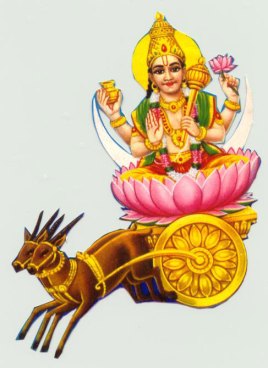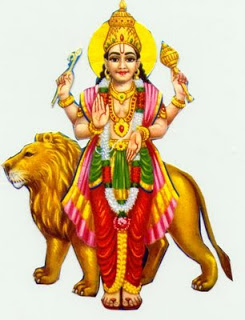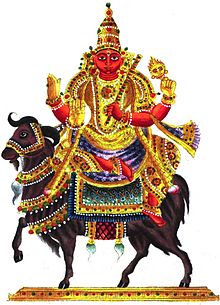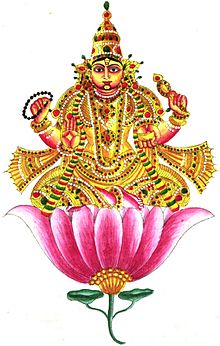The Maldivian religious nuts (a.k.a the I-find-everything-offensive-to-my-religion-therefore-it-must-be-censored brigade) have done it again! They have gone out of their way to try to prevent the corruption of innocent eighth-grade minds from the evils of the English language and ancient Western civilisations. Masha-Allah!* Such a noble bunch they are! Maldivian society will forever be indebted to them.
Of course I am talking about the recent incident of people finding a lesson in an eighth grade English textbook which talked about how the names of the planets come from Roman and Greek gods (see this article).

As we all know, 13/14 year olds do not have fully developed brains and are therefore extremely likely to lose faith in Islam and start believing in ancient deities after reading such blasphemous nonsense that no decent human would ever put into a school textbook. Because of this, Alhamdulillah!* it is a relief to know that the censor brigade brought this issue to light and that it can be dealt with properly. The last thing we want is for Maldivian youth to commit shirk.
(For non-Muslims, shirk means “association”. In a religious context, it means “ascribing partners to God” but it is often translated as “polytheism”. It is the worst sin in Islam. Hopefully now you understand just how serious this planet name issue is.)
Now, I’m going to explain to you how the disgusting polytheistic ways of past civilisations have made their way into our everyday language. I’ll also explain how Maldivians themselves might not be as steadfast in their faith as they think, Astaghfirullah!*
Some Muslim readers might want to stop here, for if you keep reading, you might denounce Islam. If you choose to continue reading, Insha-Allah* you will come out of it with your aqeedah (“creed”/”belief”) intact.
Etymology of Planet Names
Most of the planet names are derived from the names of Roman gods. Here is a table showing the planet names and the names of the gods from which they are derived. All but Uranus come from the name of a Roman god. Also, I included Pluto, because in my mind, Pluto is still a planet.

| Planet | Roman God | Greek God | Notes |
|---|---|---|---|
| Mercury | Mercurius | Hermes | God of trade; messenger of gods |
| Venus | Venus | Aphrodite | Goddess of love and beauty |
| Mars | Mars | Ares | God of war |
| Jupiter | Iuppiter | Zeus | King of gods |
| Saturn | Saturnus | Kronos | God of fertility and agriculture |
| Uranus | Caelus | Ouranos | God of the sky |
| Neptune | Neptunus | Poseidon | God of the ocean |
| Pluto | Pluto | Hades | God of the underworld |
In case you were wondering, the word “Earth” is not derived from a god’s name. The Roman and Greek Earth goddesses are called Terra and Gaia, respectively.
So there you have it. All the planet names are making innocent children commit shirk. This is clearly an Illuminati conspiracy to rid the world of the one true religion.
But wait! The heresy does not end there!
Days of the Week
Ancient Germanic people, being part of the same larger Indo-European family as Greeks as Romans, had their own counterpart gods of the sky, love, war, you-name-it. When these two cultures came into contact during the time of the Roman Empire, the Germanic people appropriated the names of the days of the week that the Romans used. And the Roman days, like their planets, were named after their gods. Because of this, we now use Germanic god names when talking about days of the week in English. Here’s another table:
| Day | Germanic God | Roman god / Heavenly body | Latin (all names translate to “day of [god]”) |
|---|---|---|---|
| Monday | – | Moon | dies Lunae |
| Tuesday | Tiu (Tyr) | Mars | dies Martis |
| Wednesday | Odin (Woden) | Mercury | dies Mercurii |
| Thursday | Thor | Jupiter | dies Iovis |
| Friday | Frigg | Venus | dies Veneris |
| Saturday | – | Saturn | dies Saturni |
| Sunday | – | Sun | dies Solis |
How tragic! Here we have Maldivians looking to the English language for knowledge and it makes them commit the worst sin possible!
Why couldn’t the English have been like the Arabs, or Chinese, or even the Portuguese for that matter, who all use numbers for their days of the week!?
Now, I’m going to tell you what may be the most shocking revelation in this whole ordeal. Polytheism is built into the Dhivehi language too!
Dhivehi Shirk
You may already know that Maldivians, like Greeks, Romans, and Germanic peoples, are part of the same Indo-European family. You probably guessed where I’m going with this.
That’s right: the Dhivehi names for the days of the week are also derived from names of gods!
Astaghfirullah wa a’udhu billah min sharri lughati!*
Let’s go through all the days one by one, to see exactly why Maldivians commit Shirk literally every day.
A warning to devout Muslims: not only will I be discussing the gods of other cultures, but I will include pictures too. If you feel your aqeedah is too weak to handle such blasphemy, you may wish to close this post, go to your nearest mosque and pray for salvation.
Monday – ހޯމަދުވަސް (Hoamadhuvas)
All the names are suffixed with ދުވަސް (dhuvas) which simply means “day”. Also, it is interesting to note that the Sanskrit words from which the Dhivehi words are derived refer directly to heavenly objects, and the association with a deity is secondary. This could be because the whole naming-after-gods thing was borrowed from Greek astrology.
ހޯމަ (hoama) comes from the Sanskrit सोम (sōma) which means “moon”, but is also used to refer to the moon deity. A more commonly used name for this deity, however, is चन्द्र (Candra), which is the origin of the Dhivehi word ހަނދު (han’dhu – “moon”).
This is Sōma:

Tuesday – އަންގާރަދުވަސް (Angaaradhuvas)
އަންގާރަ (angaara) comes from Sanskrit अङ्गारक (Angāraka) which is one of the names of मङ्गल (mangala), which is the name of Mars, and a god of war.
This is Mangala:
Wednesday – ބުދަދުވަސް (Budhadhuvas)
ބުދަ (budha) comes from Sanskrit बुध (budha) which is the name for Mercury. The status of Budha as a deity is not consistent.
This is Budha:

Thursday – ބުރާސްފަތިދުވަސް (Buraasfathidhuvas)
ބުރާސްފަތި (buraasfathi) comes from Sanskrit बृहस्पति (Bṛhaspati), a name which was used to refer to the planet Jupiter or a sage who counsels the gods, also known as गुरु (guru).
This is Bṛhaspati:
Friday – ހުކުރުދުވަސް (Hukurudhuvas)
ހުކުރު (hukuru) comes from Sanskrit शुक्र (Śukra) which was the name of the Planet Venus, and a sage who counselled Asuras, a class of powerful, superhuman demigods.
This is Śukra:
Saturday – ހޮނިހިރުދުވަސް (Honihirudhuvas)
ހޮނިހިރު (honihiru) comes from Sanskrit शनि (Śani) which refers to the planet Saturn, and an inauspicious deity which brings bad luck.
This is Śani:
Sunday – އާދިއްތަދުވަސް (Aadhitthadhuvas)
އާދިއްތަ (aadhittha) comes from Sanskrit आदित्य (Āditya) which is one of the names of सूर्य (Surya) the sun god.
This is Āditya:

Well?
Astaghfirullah astaghfirullah astaghfirullah astaghfirullah astaghfirullah astaghfirullah astaghfirullah astaghfirullah astaghfirullah astaghfirullah astaghfirullah astaghfirullah
I can only hope your faith has not crumbled after going through all that.
So now we know that the worst sin is deeply ingrained into the two most commonly used languages in the Maldives. From now on, we must refer to days and planets using ordinal numbers (first day, fifth planet, etc). We can implement this change immediately, starting with grade 8 textbooks. It is the only way Maldives can remain a 100% Muslim country free of the corrupt ways of past civilisations.
Thank you for reading.
Please DO NOT look at this page for more information about Dhivehi days of the week.
And Please, for the love of الله, DO NOT share this with anyone, especially school kids. You DO NOT want to corrupt people’s minds with FACTS about the origins of words. We cannot let facts get in the way of our beliefs.
*Arabic/Islamic Phrases
- Haram: “Prohibited/forbidden”
- Masha-Allah: “What God wills” (used as a generic positive interjection)
- Alhamdulillah: “Praise be to God”
- Astaghfirullah: “I seek forgiveness from God”
- Insha-Allah: “If God wills”
- Astaghfirullah wa a’udhu billah min sharri lughati: “I seek forgiveness from god and I seek refuge with God from the evils of my language”





Yes, 13-14-year-olds are very mature and not forming opinions about everything they encounter at all, and are very much NOT influenced by literally everything they study.
A lesson looking into the etymology of planet names CERTAINLY needs a matching exercise about which Greek deity does which ~job~
A million points for you for making a mockery out of literally the basis of Islam, the most important aspect, the literal reason for our existence according to the Qur’an, Tawheed, and the actual worst sin in the Sight of Allah sub’haanahu wa ta’aala, Shirk. Because it’s so funny when adolescents can’t even properly remember the 6 cornerstones of BASIC Islamic creed or the 5 bases of Islamic actions, but they totally need to know mythology and past civilisations’ false religions. Cuz, y’know, that’ll totally help them ace their aakhirah. Cuz we don’t have an incredible increase in youth who’re disconnecting from their religion and moving away from the right path, falling more and more into materialism and hedonism. That’s totally not happening.
That you can sit there and make sarcastic comments about ~teh haram brigade~ or whatever for being concerned about the things taught in school is exemplary of the lack of concern and apathy most Maldivian “Muslims” have for the preservation of their faith and their own Hereafter. Thanks for proving a point, m8.
LikeLike
I think you may have misunderstood the intention of this post. But, in your defence, I will admit to being excessively sarcastic and a bit harsh.
I was not making a mockery of Islam. I was mocking the people who seem to think that including any references to non-Islamic cultures/worldviews in an educational text is a bad thing. And mocking those people does not mean I am apathetic about the other issues you have mentioned. It seems that what you are telling me is “you didn’t write about this, therefore you don’t think this”, which is incorrect and illogical.
Also, I never said anything about the necessity of such a lesson. But if you must know, I think this kind of thing would be more suited to a social studies textbook rather than an English one. And your suggestion that this knowledge is useless could be made about any subject apart from Islam.
You acknowledged that there is a collective crisis of faith happening amongst Maldivian youth. And I would agree. But it is naive to think that rewriting textbooks would change this.
The disappearance of faith amongst the youth has nothing to do with textbooks. But it may have something to do with the way some people express their “concern” for said disappearance, as well as the way Islam is taught. When you say that adolescents should “remember” things, you are implying that Islam is learned by rote; a point on which I don’t agree.
I think the change has to start there. So maybe that is where these people should be directing their concerns, instead of inconsequential references to ancient gods.
LikeLike
Since I am not a Muslim, I can read your explanations with interest and and remain totally calm. Thank you once again!
LikeLike
I was expecting a range of reactions. Good to know there is a neutral one 🙂
LikeLike
Tbh I am a 14 year old maldivian kid. I am not religious and I believe in what you have said. Maldivian people’s faith shatter very easily. Our english teacher took our textbooks saying that it contains “inappropriate subjects”
LikeLike
I am actually laughing at the whole thought of people getting all hot-blooded and angry over these things when we do not care to read enough about the birth and derivation of our own language. I am Muslim and I am a Maldivian, but even I do accept that many of takes the whole ‘religion’ card a bit too far most of the times.
I’ve known that Maldivian language is a product of Sanskrit branching out and I’ve always noticed the similarities our language share with Hindi language (more like Sanskrit!) so it is obvious that even the names of days are related to it.
What I don’t get is why these religion police are so hell-bent on making everything about religion when ours is a country riddled with lies, corruption and greed.
But no, forget that, we should all focus on the serious matter of kids and their oh-so-weak aqeedah. So weak are their aqeedahs that the mere reference of a Greek or Roman deity on a textbook could send them into a spiral of existential crisis.
LikeLike
I will agree with your sarcasm( but still I hope you are not hostile to Muslims or Anti Islamic in any way), I was literally in that year when we saw that. We(me and my classmates) were able to identify these elements, but we only laughed at these attributions( God of water, war, love, fertility, etc!). Only halfway through the year, someone reported it, but our book is still with us.
LikeLike
I’ve discovered your writing through a very mundane talk with some expatriates I work with (it definitely had something to do with linguistics, albeit not at this depth), after googling the topic of that conversation which led me to your blog upon a random click I decided to make out of the multitude of links the search resulted in. Ever since I’ve been going through your content and I must say I haven’t read something this amusing and profound at the same time, for a long while by a fellow Maldivian. I’m truly impressed by this blog and even wish to contact you personally, if that is possible by any means!
This was the first feature I read, but I have gone through more, so decided to drop in a comment here. Cheers 🙂
LikeLike
Thanks for the kind words! You can contact me through email or twitter if you like.
LikeLike
what is the Maldivian name for the Buddha? I’ve been looking for it but still can’t find!
LikeLike